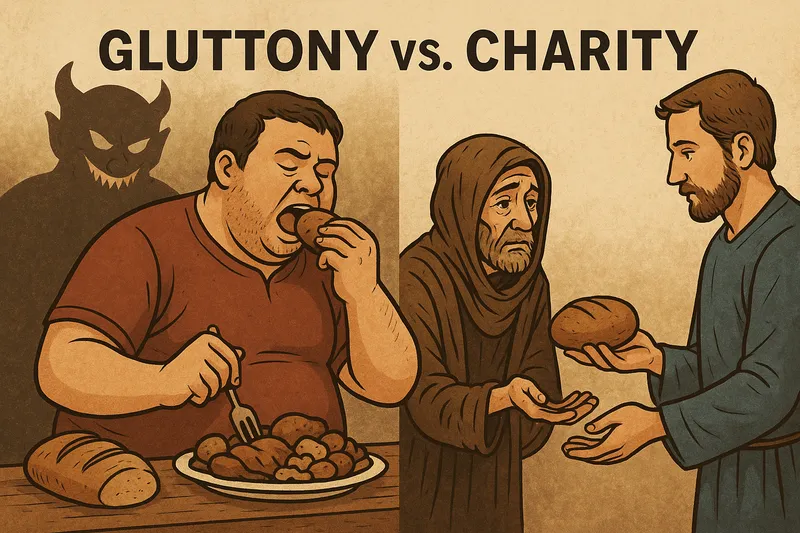
You Can't Take It With You When You Go
And the King will answer and say to them, 'Assuredly, I say to you, inasmuch as you did it to one of the least of these My brethren, you did it to Me.' - Matthew 25:40
A recent video from the harmony YouTube channel explores how Saints fight the demons and inner passions. The narrator explains how gluttony dulls the senses through rich food, diminishing the ability to pray. When bodily needs are satisfied, the need for God feels less urgent.
He goes on to explain how gluttony refuses charity to the poor by choosing consumption over generosity. This leads to spiritual corruption – instead of sharing sustenance and resources with those in need, one hoards these gifts selfishly.
This perspective illuminates the nature of grudges against those with wealth. True poverty extends beyond mere financial lack to encapsulate the absence of opportunity and space. Direct giving matters profoundly – when someone in need requests something specific, providing exactly what they ask for carries greater impact than abstract charitable donations. If a hungry person needs food, providing that meal creates immediate connection and relief, as opposed to donating to an international food bank NGO.
The current economic landscape reveals how younger generations remain financially unstable despite the abundant wealth of previous generations. The secular humanist, deterministic worldview permeating Western culture emphasizes pleasure and comfort above all, because of the claim that there is no life after death, let alone judgment. This hedonistic pleasure-seeking mileu discourages the sharing of resources that bring security. "My boat, my land, my house" – these possessions could generate substantial good when used properly from generation to generation.
An alternative vision would transform property into productivity – such as creating farms to grow food for the hungry, then teaching others to do the same by welcoming them onto the land. This approach stands in contrast to monetary transactions that perpetuate materialism and comfort-seeking without addressing fundamental needs.
As Josiah Trenham explains, during Bright Week, Orthodox Christians attend multiple services. On Friday, a liturgy mirrors the Paschal energy with profound joy. This season calls believers to forgive every grudge and, as the hymns proclaim, to "hold enemies as brothers" and invite them to participate in resurrection joy.
Grudges dissolve in the recognition that God Himself chose not to hold grievances against humanity. He redeemed those who made themselves His adversaries, who alienated themselves from divine connection. He chose redemption and reconciliation, extending mercy to the faithful awaiting salvation.
This represents a fundamental truth – spiritual fulfillment comes from God alone, not from human relationships or material security (although the light of God can permeate all things). Life's challenges consistently direct the soul toward Orthodox faith, Christ, and the mysteries of the Church. What initially appears as opposition often serves as a hidden blessing.
All grudges deserve forgiveness, especially during Bright Week. This mirrors Christ's example on the cross: "Forgive them Father, they know not what they do." (Luke 23:34) His subsequent return and redemption of humanity provides the pattern for reconciliation.
This sacred season following resurrection calls for application of the prayer acknowledging that God "does not despise the works of His hands and doesn't wish death on a sinner but that he should turn from his wickedness and live."